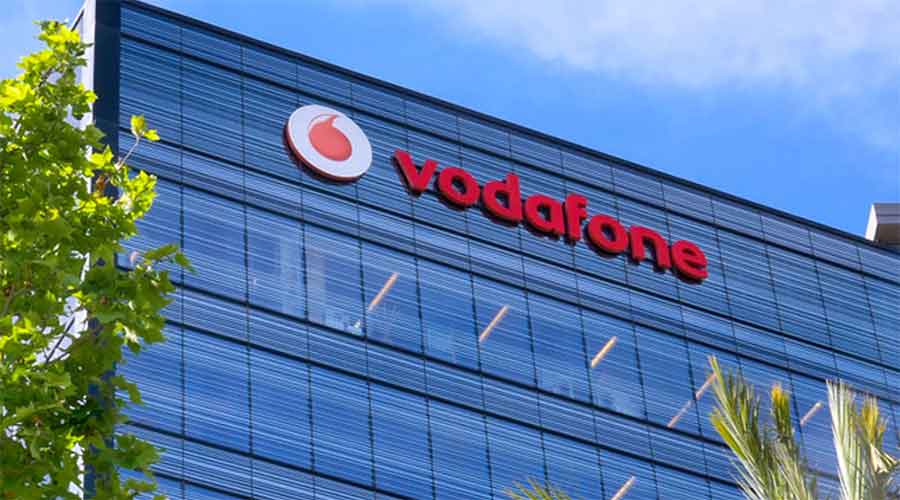In a move that is likely to spook foreign investors, India has appealed in Singapore an international arbitration court ruling in favour of British telecom giant Vodafone Plc over a tax demand for Rs 22,100 crore by the government.
The government is also expected to challenge a similar arbitration ruling announced on Wednesday by the same court based in The Hague involving Cairn Plc in which the energy heavyweight was awarded damages and costs totalling over Rs 8,800 crore.
Vodafone won its high-profile arbitration case three months ago and the company hoped this would close the lid on its bitter dispute with the government involving retroactive tax claims.
The government’s appeal of the Vodafone ruling was filed on the final day of the 90-day deadline to approach the Singapore court. The government is keen to pursue a uniform approach in the cases of both Vodafone and Cairn and India has “the sovereign right of taxation,” according to a government official. The country is not bound to abide by the decisions of an international arbitration court, the official said.
The same tribunal invalidated the government’s $2.75 billion tax claim made in 2015 on Cairn Energy, which now belongs to Anil Agarwal’s Vedanta Resources, and also ordered the government to return up to $1,.4 billion in funds withheld, interest and costs, to the firm.
Both Vodafone and Cairn had filed their challenges to the government’s tax demands under bilateral investment treaties. The sum awarded to Cairn by the Permanent Court of Arbitration at The Hague is regarded in official circles in New Delhi as so large that the cash-strapped government has no option but to appeal. Cairn had said that the government’s tax claim violated a bilateral investment treaty between Britain and India.
Back in September in its decision on Vodafone, the Permanent Court of Arbitration held that the government had broken provisions of the India-Netherlands Bilateral Investment Treaty in making its tax demand by retrospectively by changing the law.
The tribunal said that New Delhi’s 2012 law empowering itself to make tax demands concerning cross-border deals all the way back to 1962, citing “underlying Indian assets” was in breach of the investment treaty.
For foreign investors who prize tax certainty in making investment decisions, the government’s move to appeal will be a cause for alarm. Investors had hoped that the government would accept the Vodafone and Cairn verdicts and realise that retroactive taxation has no place in law. The decision to appeal could hurt Prime Minister Narendra Modi’s efforts to woo business to India and away from China.
Modi had promised the international investment community in 2016 that its concerns about India’s retrospective taxation legislation had been heeded. “Retroactive taxation is a matter of the past. That chapter will not be opened again. We are ensuring that neither this government nor future governments can open this chapter,” he told the India-France Business Summit. At the same time, the government is unwilling to cede any ground to foreigners in taxation matters. India’s Solicitor General Tushar Mehta also said that it is a question of law — that an international arbitration panel cannot declare legislation passed by a sovereign parliament “unenforceable.” He said on those grounds alone India “must challenge the said award and must file all available proceedings to challenge the award.”
The three-person arbitration panel’s decisions were unanimous in both the September ruling in favour of Vodafone and the December judgment upholding Cairn’s case.
Earlier this month, Modi reviewed the Vodafone ruling at an inter-ministerial group meeting at which the law ministry supported an appeal of the arbitration decision.
The appeal of the Vodafone ruling by the Indian government came as the British company received more bad news about its Indian operations. Figures released by the Telecom Regulatory Authority of India showed that Vodafone Idea’s net mobile subscriber numbers have fallen even further behind its biggest competitors. While Reliance Jio Infocomm’s subscribers rose by 2.2 million to 406 million by the end of October and Bharti Airtel’s subscribers jumped by 3.7 million to 330 million, Vodafone Idea’s customer base slid by 2.7 million to 293 million.
The Cairn case resulted from a reorganisation of the energy firm under which Cairn UK transferred shares of Cairn India Holdings to Cairn India. India’s tax department maintained that the reorganisation ahead of the listing of Cairn India in 2007 involved capital gains of over Rs 24,000 crore for Cairn that it was entitled to tax.
The Indian tax claim against Vodafone followed the British company’s $11.1 billion purchase in 2007 of a majority stake in the Indian cellphone unit of Hong Kong’s Hutchison Whampoa. Indian tax officials contended Vodafone should have withheld the amount the vendor was due to pay in capital gains tax when it bought the stake. But Vodafone argued it was exempt because the deal took place in the Cayman Islands and both the buyer and seller were foreign. Vodafone also noted it was the purchaser and made no gain on the deal.
India’s Supreme Court ruled in 2012 that “Indian tax authorities had no jurisdiction to tax Vodafone” as it was an overseas transaction. But then parliament reimposed the levy.











